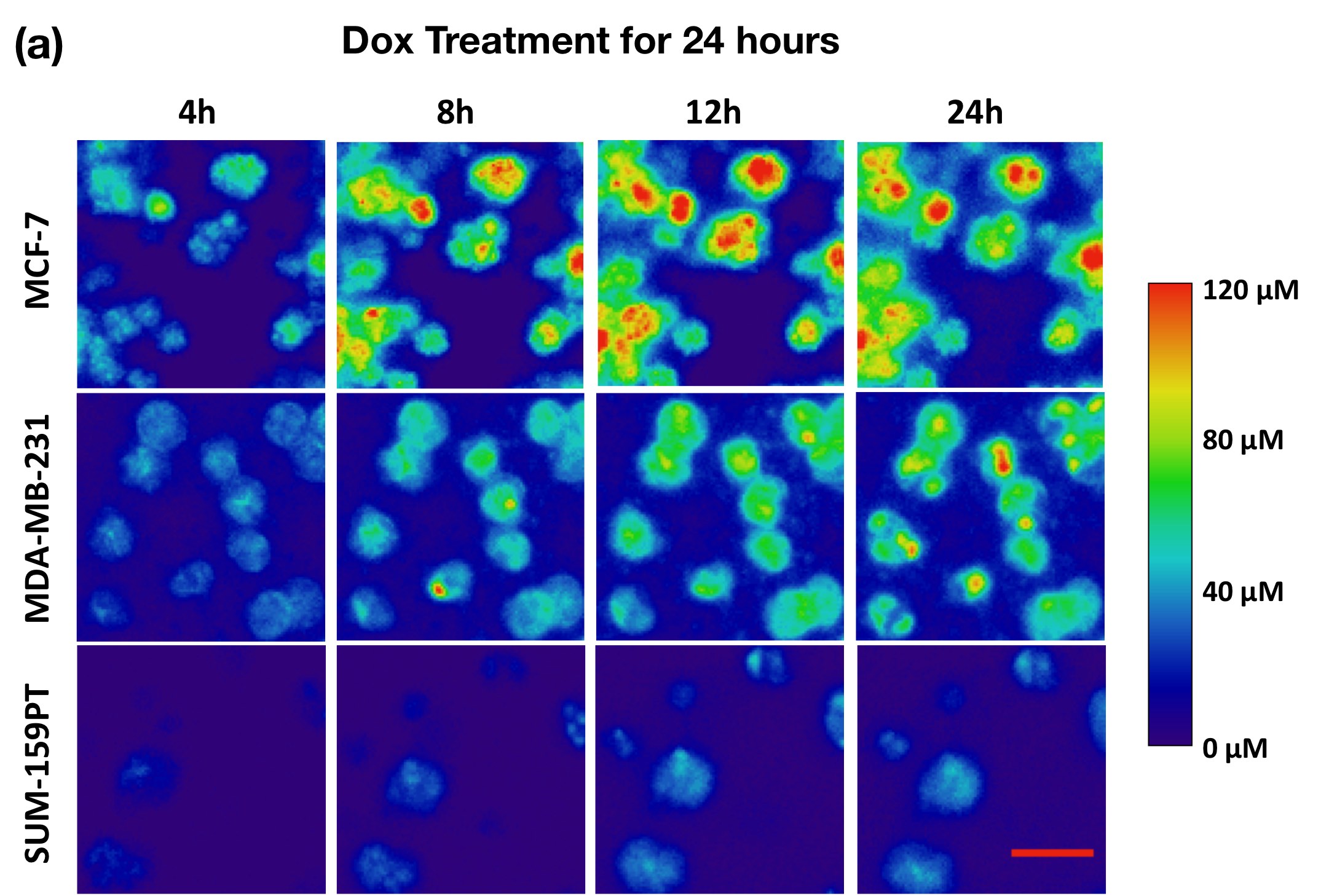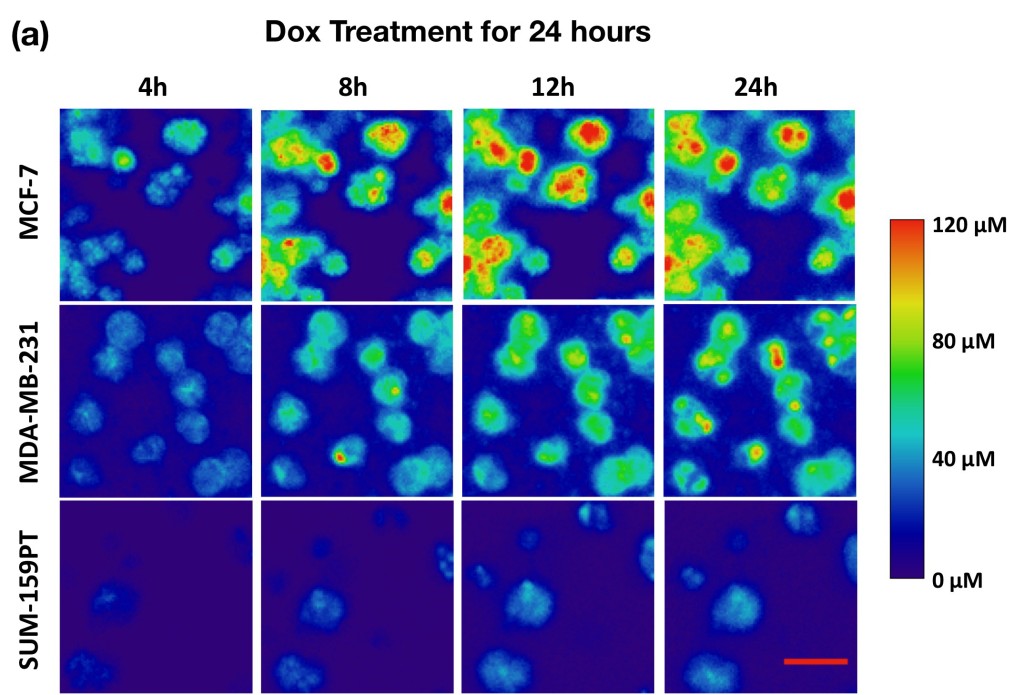Our work to characterize cellular pharmacokinetics (i.e., drug uptake) using tumor-microenvironment-on-chip and quantitative microscopy is published in Molecular Pharmaceutics. Corresponding news release can also be found here.
Characterization of Cell-Type-Specific Drug Transport and Resistance of Breast Cancers Using Tumor-Microenvironment-on-Chip
Kyeonggon Shin, Brett S. Klosterhoff, and Bumsoo Han
Abstract: Heterogeneous response and resistance of cancer cells to chemotherapeutic drugs pose a significant challenge for successful cancer treatments. In this study, an integrated experimental and theoretical analysis of cellular drug transport was developed. The experimental platform, called tumor-microenvironment-on-chip (T-MOC), is a microfluidic platform where cancer cells were cultured within a three-dimensional extracellular matrix perfused with interstitial fluid. Three types of human breast cancer cell lines (MCF-7, MDA-MB-231, and SUM-159PT) were cultured on this T-MOC platform, and their drug response and resistance to doxorubicin were characterized by time-lapse quantitative fluorescence microscopy. To study the effects of nanoparticle-mediated drug delivery, the transport and action of doxorubicin encapsulated nanoparticles were also examined. Based on the experimental data obtained, a theoretical model was developed to quantify and ultimately predict the cellular transport processes of drugs cell-type specifically. The results demonstrate that the cellular drug transport can be cell-type-specifically quantified by rate constants representing the uptake and efflux of doxorubicin across the cellular membrane.

